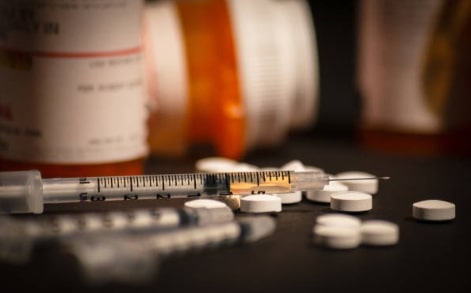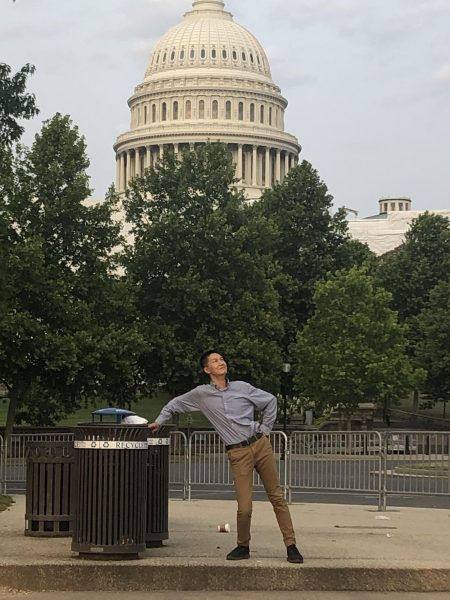Decisive action needed to eradicate substance use

Photo Courtesy of Darwin Brandis on Shutterstock
In 2021, about 75% of adolescent overdose deaths were attributed to fentanyl. The opioid has become more common in schools recently, leading to more risk, and in many cases, preventable deaths.
May 20, 2023
The heartbreaking stories are numerous and overwhelming- a bright young student losing their life to a substance they, whether intentionally or not, consumed. This killer always seems so far away, until it strikes too close to home, leaving entire communities in shock and grief. Recently, these cases have spiked due to the newfound prevalence of fentanyl, an artificial drug that has the power to be lethal in even tiny doses. This poison finds its way into just about anything, creating a terrifying reality in which any kid can die suddenly without even knowing it.
The only solution is simple- a systemic and decisive crackdown on all forms of drugs. Only with such substances completely eradicated from schools, where they can be passed to unsuspecting victims, can the community minimize this risk of unnecessary deaths.
WCHS has become a haven for the consuming and exchanging of drugs, more than ever so following the COVID-19 pandemic and the subsequent return to schools. Students and teachers alike complain over the constant vaping commonly found in student bathrooms, with users sometimes partaking in these activities in groups. On its own, a tiny bit of vaping is but a minuscule problem, but at the scale, it is present here, it poses serious risks to these students’ health and the overall school environment.
The ease of use of these bathrooms suffers due to the constant use of electronic cigarettes, which can cloud vision, much to the chagrin of students who would otherwise actually use the facilities. At the same time, users are sometimes choosing to skip entire classes for a meaningless high, impacting their personal education.
More concerning in the long term, however, is the idea that vaping and softer drugs that students may try, such as LSD or marijuana, act as “gateway drugs” to considerably more dangerous substances, such as cocaine or methamphetamine (meth), and even the previously mentioned fentanyl. These drugs are extremely dangerous, and repeated use, or even just an “accident”, can kill.
For the long-term safety of students, definitive limits must be set to prevent and discourage substance use on school grounds. A great start would be installing vape detectors in bathrooms, which can detect microscopic particles in the air that only e-cigarettes emit. This idea is actually being considered by the county.
Additionally, stricter rules for students wandering the halls must also be implemented. Though the WCHS administration has recently begun cracking down on tardy students, the bigger issue remains with the students who never even attend class. Security should be made to check in bathrooms frequently and ensure that students are in their classes, rather than roaming the halls freely. All of these measures would assist in only reducing drug use in WCHS.
But it is not enough to stop there. Found offenders of these policies must be warned of these transgressions, and repeat offenders punished accordingly. A phone call home, barred from playing in a school sports match, and even suspension are viable options to discourage such conduct in the future.
These policies may seem harsh, and somewhat useless, given students could just wait until they are out of school to consume these harmful substances. While, yes, the use of drugs is a personal choice, and WCHS administration has no jurisdiction or means to prevent use outside of the school, it is less about the person and more about the learning environment, and more about preventing disastrous events from occurring during school hours. As much as it is unfortunate to say, there is nothing anyone can do to students that insist on putting drugs into their bodies, with the exception of the legal system. The only thing anyone else can do is hope these people will wake up and realize the ways in which they are killing themselves, and even if they stop, the price they will eventually pay. But one thing is certain- we must do what we can to curb this problem, as much as we can, as soon as we can. If we want to reduce needless death from these unforgiving toxins, these are initiatives we must take.


